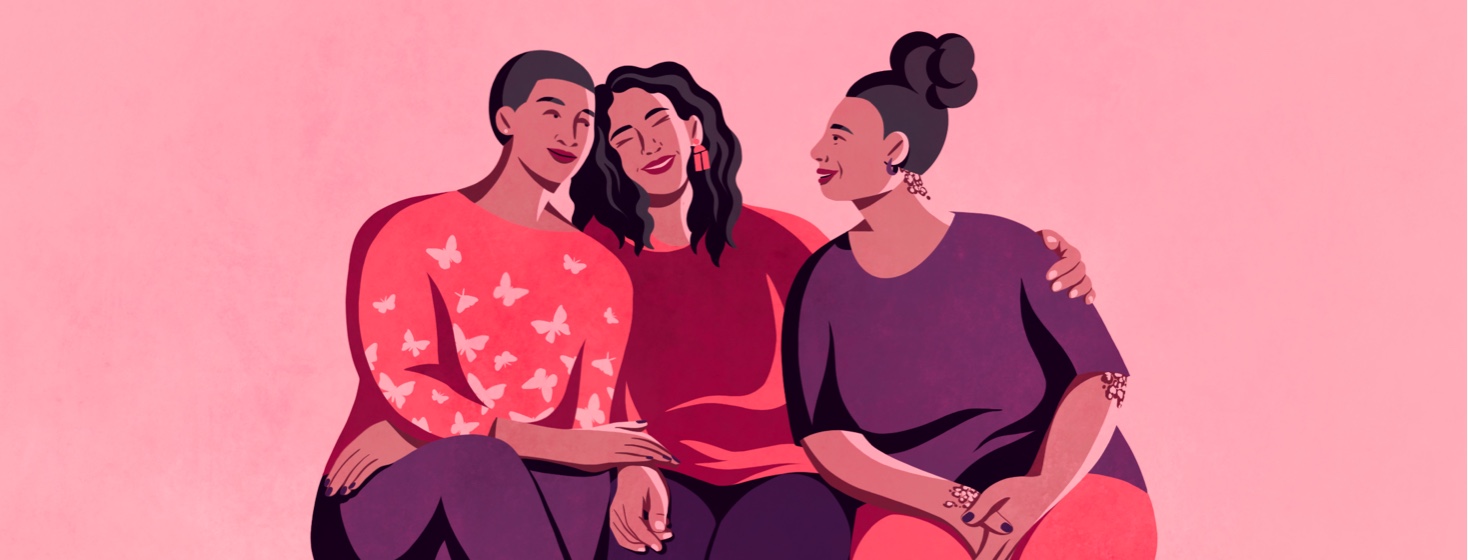Navigating the Path of Being HIV Positive: The Power of Positive Allies
Being HIV positive is a journey through uncharted waters. It's a battle that is not just fought against the symptoms of the virus but also against stigma, ignorance, and the personal struggles that come with it. Every day can be a fight, and it becomes even more challenging when you find yourself confronting, not only your own issues, but also the misguided opinions of others.
Living with a condition like HIV comes with its fair share of challenges, but it's often the societal stigma, and the insensitive comments that cut the deepest. It's like fighting a 2-front war – battling the debilitating symptoms, while also facing the ignorance of others. What is supposed to be a journey towards healing often turns into a battlefield where you are not just fighting the virus, but also the bias that surrounds it.
A visit from my sisters
Recently, I had an experience that shed light on the importance of having positive allies when you need support the most. My sisters came to visit, a moment of joy and bonding. Little did I know that this visit would become a powerful reminder of the significance of having people who stand by you.
Everything seemed normal until my half-sister made a random, ignorant comment about people with HIV being "diseased," and needing to showcase their status. It felt like a slap in the face, a reminder of the misunderstanding that continues to plague our society.
The weight of her words hit hard, not just because of the comment itself, but because it was coming from family, someone who should be an ally.
Featured Forum
View all responsesA sister who stepped up
However, amidst the disappointment, a glimmer of hope emerged. My other sister stepped in, swiftly and firmly correcting her. It was a small act, but it spoke volumes. It demonstrated the power of positive allies, the importance of having people who not only understand but are ready to challenge misconceptions and stand up for what's right.
This incident underscored the value of allies in the battle against HIV-related stigma. Allies are those who don't just empathize but actively support, educate themselves, and advocate for change. They play a crucial role in breaking down the walls of ignorance and creating an environment of acceptance.
Positive allies can come from any corner of your life – friends, family, colleagues, or even strangers who choose to stand by you. Their support isn't just comforting - it's empowering. It gives you the strength to keep fighting, to keep educating, and to keep breaking down the barriers that ignorance builds.
In a world where misinformation can spread as rapidly as the truth, having allies who are armed with the right information is invaluable. They become your partners in dispelling myths, sharing facts, and fostering a culture of understanding. When someone close to you steps up to educate others, it not only educates the person they're addressing but also sends a ripple effect of awareness through their circles.
The role of positive allies when living with HIV
Being HIV positive doesn't just require medical attention; it requires a support system that extends beyond the doctor's office.
Positive allies become part of that support system. They're the ones who uplift you on days when the battle feels particularly fierce. Their unwavering belief in your worth and their willingness to challenge the status quo can make all the difference.
So, if you find yourself in a similar situation – facing ignorance or stigma – remember that you're not alone. Seek out those who stand by you, who understand, and who are ready to be positive allies. And if you're someone who wants to make a difference, educate yourself, become an ally, and join the movement to break down the walls of stigma.
In a world that desperately needs more compassion, understanding, and acceptance, being a positive ally isn't just an act of support, it's a stance against injustice. It's a way of saying that you're ready to stand up, educate, and create a world where everyone, regardless of their health condition, is treated with respect and dignity.

Join the conversation